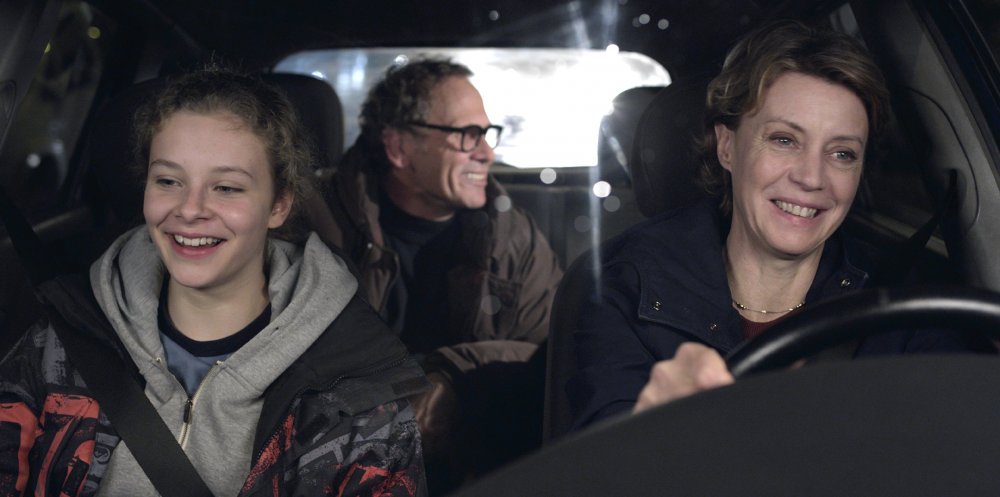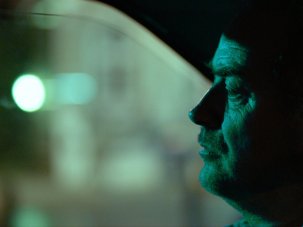Nanni Moretti has dealt movingly before with family bereavement, in The Son’s Room (2001). But there the death was that of a cherished teenage son who dies unexpectedly in a scuba-diving accident, shattering his family.
Italy/France/Germany 2015
Certificate 15 106m 54s
Director Nanni Moretti
Cast
Margherita Margherita Buy
Barry Huggins John Turturro
Ada Giulia Lazzarini
Giovanni Nanni Moretti
Livia Beatrice Mancini
In Colour
[1.85:1]
Subtitles
UK release date 25 September 2015
Distributor Curzon Film World
miamadre.co.uk
► Trailer
This time the death is far from unpredictable: that of the elderly ailing mother of the protagonist Margherita, a film director played by Margherita Buy. Yet for all that it’s expected – right from the start of the film we can guess that Ada (Giulia Lazzarini) will be dead by the end of it – it’s no less moving, not least because of the strong autobiographical element. Moretti’s mother, to whom he was much attached, died while was shooting his previous film, We Have a Pope (2011).
That film was deplored in some quarters for what was seen as Moretti’s indulgent treatment of the papacy and the Catholic hierarchy, in contrast to the highly critical view of the Italian establishment he took in much of his earlier work (Aprile, The Caiman). In Mia madre he seems to be lampooning this view of himself as a consistently leftwing gadfly when Margherita faces a press conference about her film in progress, a strongly pro-labour account of a sit-in at a factory where the workforce is threatened by layoffs. “Today’s audiences,” she starts to pontificate, “ask us for a different commitment, films which are not just entertainment, but which affect our reality. That’s why the task of cinema is to give voice…”
“Yes, sure, the task of cinema,” her inner voice takes over. “Why have I been saying the same thing for years? Everyone thinks I can understand what’s happening, interpret reality, but I don’t understand a thing any more.”
If we can take Margherita as Moretti’s surrogate (her advice to actors to “be next to the character” is apparently one of his regular instructions), he doesn’t cut her much slack. She’s shown as peremptory, hypercritical of her actors and crew, often tactlessly vocal in her dissatisfaction, while offering little in the way of praise beyond a perfunctory “Good, good.” Not that she’s easy on herself either. “Why did you listen to me?” she yells at her crew after one screw-up. “The director’s an asshole and you let her get away with it!” It must be admitted, too, that what we see of her film isn’t indicative of any great cinematic experience; it looks worthy but dull, lacking in humour – which could scarcely be said of any of Moretti’s movies.
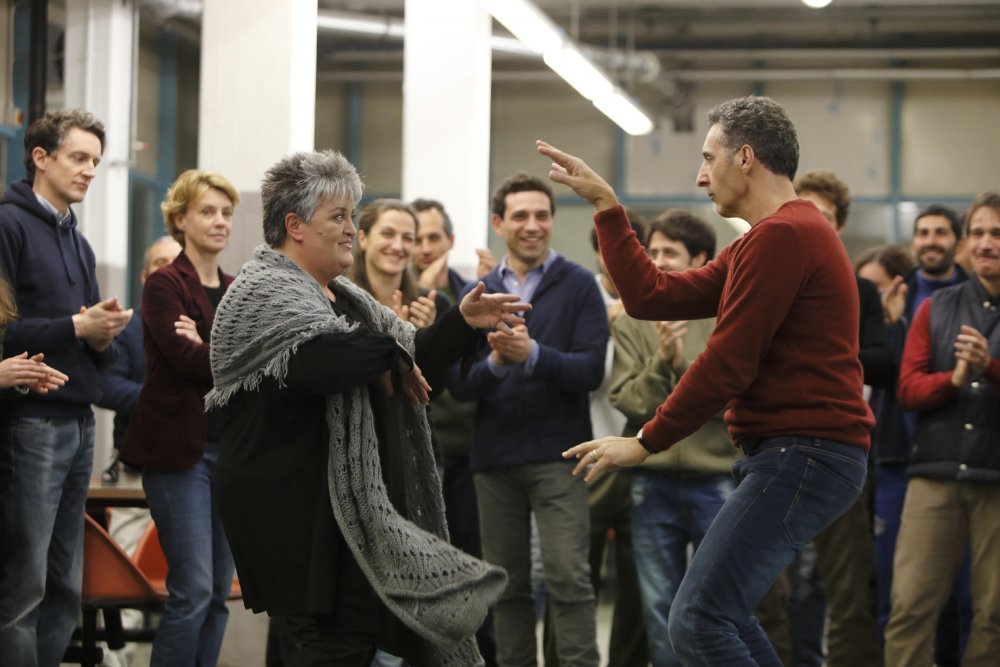
Mia Madre (My Mother, 2015)
That latter ingredient, in Mia madre, is amply supplied by John Turturro, giving a gloriously ripe caricature of the kind of up-his-own-ass Hollywood actor with his career on the skids who resents being given direction and boasts of his supposed association with Kubrick (“Stanley was crazy about me!”). The scene where he and Margherita finally lose it and trade insults on the set offers good absurdist fun (“Take me back to reality!” howls Turturro); but almost immediately afterwards Margherita, her life sliding out of control, hits her lowest point, and finds herself screaming no less violently at her dying mother.
For, aside from the moviemaking insider jokes, this essentially pairs with The Son’s Room as a film about family, constantly focusing back on Margherita’s relationship with her brother Giovanni (played by Moretti himself), with her sweet-natured daughter Livia, her estranged husband Federico and, always and crucially, her dying mother. Into this mother-daughter nexus, close but fraught, Moretti folds several sequences whose exact nature is ambiguous: dreams, memories, anxieties, nightmares? We see Margherita patrolling the length of an enormous queue for one of her previous movies (wish fulfilment?); in the queue are her mother and her own younger self.
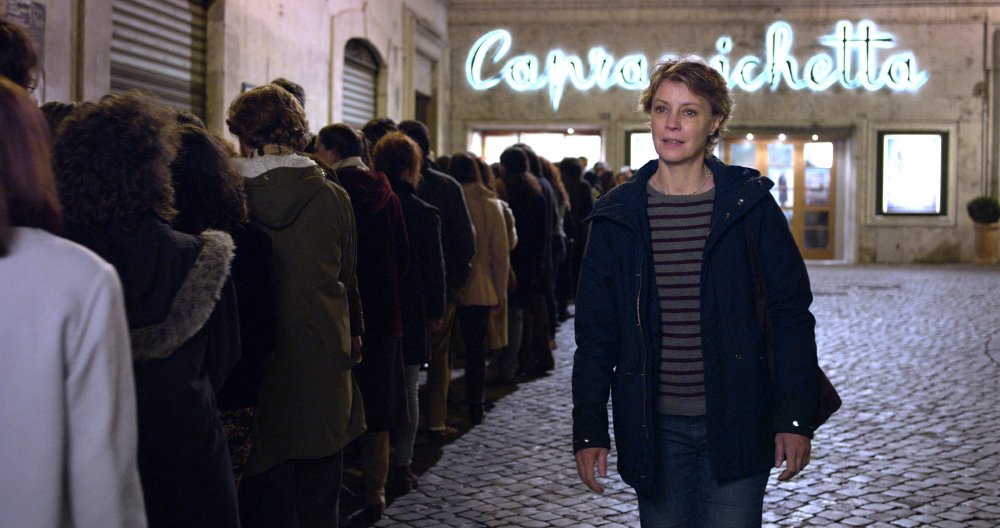
Mia Madre (My Mother, 2015)
At another juncture she encounters her mother trying to drive, even though Margherita claims her licence has expired: she tears up the licence, grabs the wheel and repeatedly rams the car into a wall. Another recurring sequence (seemingly shared by both Margherita and Giovanni), shows Ada wandering unimpeded out of the hospital and across a busy street wearing her hospital shift. Up to us to decide which if any of these represent reality.
For all his often disenchanted outlook, Moretti’s films almost always end on a positive note (however hard won). Mia madre is no exception, as Ada’s ex-pupils (she taught Latin, and evidently loved her job) come to pay warm posthumous tribute to her as a teacher and a person. No surprise that the film earned an eight-minute standing ovation at Cannes.
In the October 2015 issue of Sight & Sound
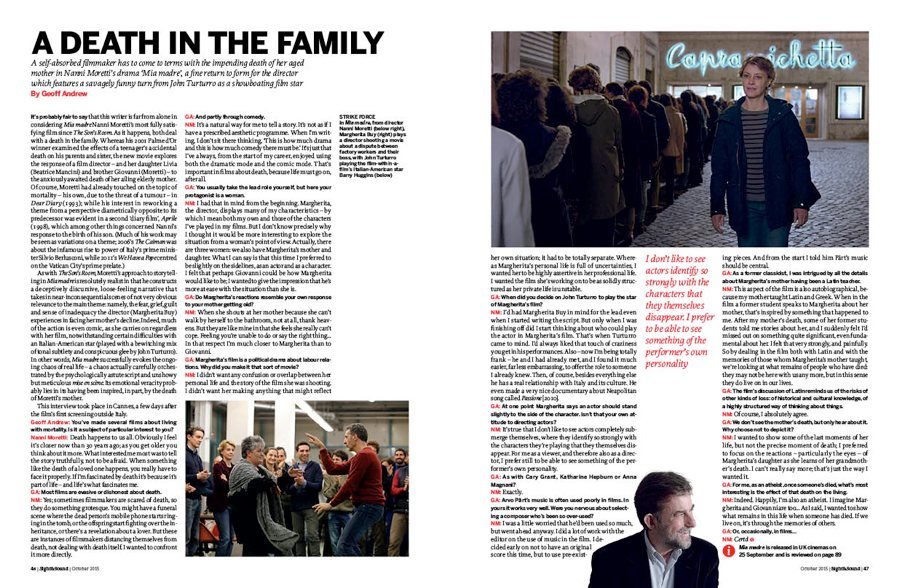
A Death in the Family
A self-absorbed filmmaker has to come to terms with the impending death of her aged mother in Nanni Moretti’s drama Mia madre, a fine return to form for the director which features a savagely funny turn from John Turturro as a showboating film star. By Geoff Andrew.
-
Sight & Sound: the October 2015 issue

The Female Gaze: 100 underrated films directed by women, with contributions from Agnès Varda, Jane Campion, Claire Denis, Isabelle Huppert, Tilda...
-
The Digital Edition and Archive quick link
Log in here to your digital edition and archive subscription, take a look at the packages on offer and buy a subscription.




